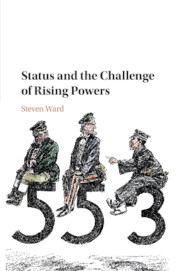Book contents
- Status and the Challenge of Rising Powers
- Status and the Challenge of Rising Powers
- Copyright page
- Dedication
- Contents
- Figures and Tables
- Acknowledgments
- Introduction
- 1 Revisionism, Order, and Rising Powers
- 2 Status, Foreign Policy, and Revisionism
- 3 “World Power” and Revisionism in Wilhelmine Germany
- 4 Japan Joins the “Community of the Damned”
- 5 A Peace “Incompatible with Our Honor”
- 6 Status and the Anglo-American Power Transition
- 7 Status, Order, and the Rise of China
- Conclusion
- References
- Index
- References
References
Published online by Cambridge University Press: 31 October 2017
- Status and the Challenge of Rising Powers
- Status and the Challenge of Rising Powers
- Copyright page
- Dedication
- Contents
- Figures and Tables
- Acknowledgments
- Introduction
- 1 Revisionism, Order, and Rising Powers
- 2 Status, Foreign Policy, and Revisionism
- 3 “World Power” and Revisionism in Wilhelmine Germany
- 4 Japan Joins the “Community of the Damned”
- 5 A Peace “Incompatible with Our Honor”
- 6 Status and the Anglo-American Power Transition
- 7 Status, Order, and the Rise of China
- Conclusion
- References
- Index
- References
- Type
- Chapter
- Information
- Status and the Challenge of Rising Powers , pp. 220 - 251Publisher: Cambridge University PressPrint publication year: 2017



